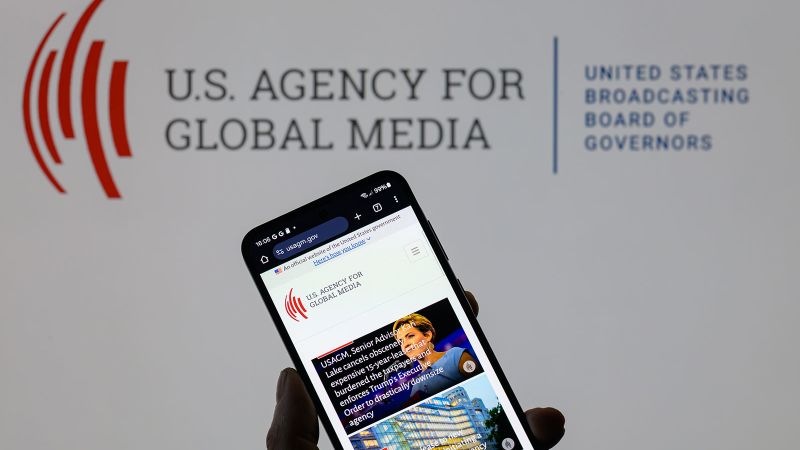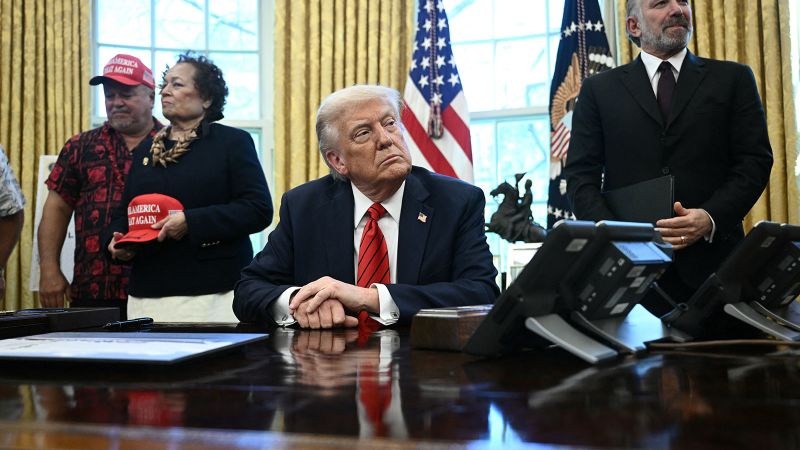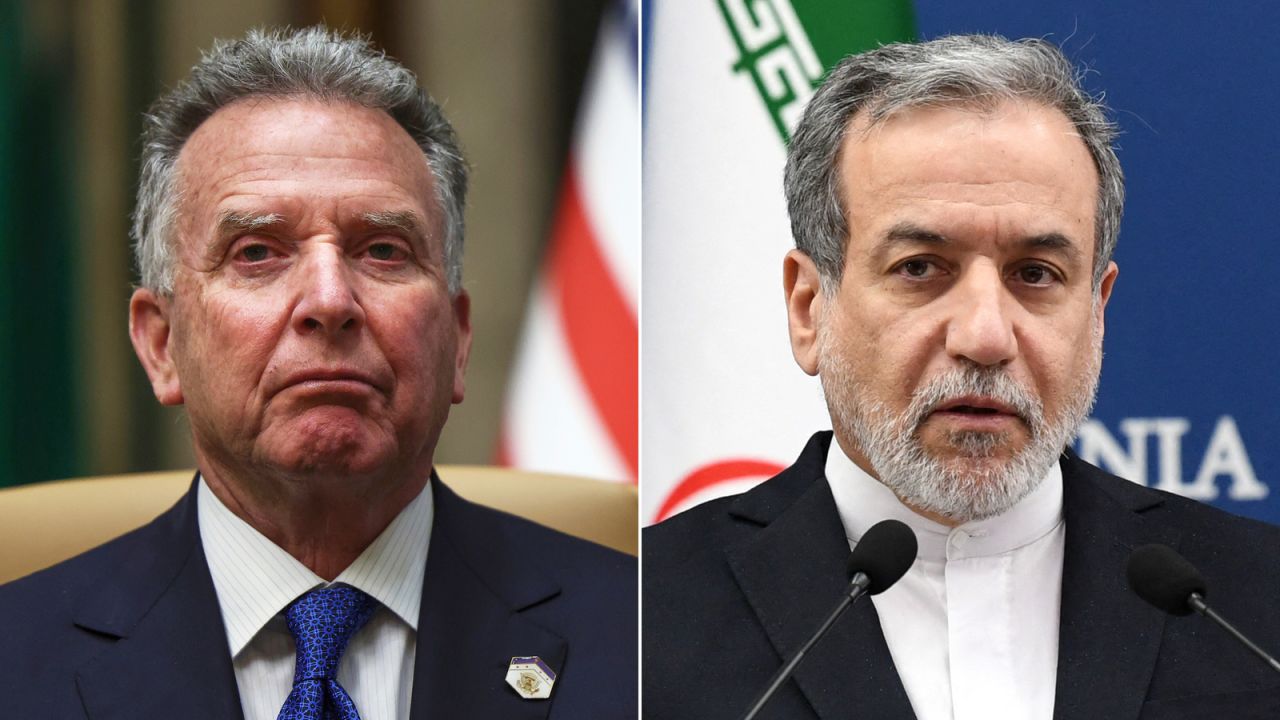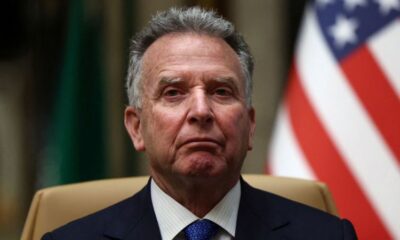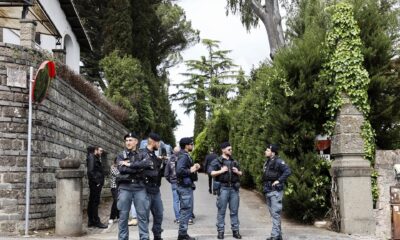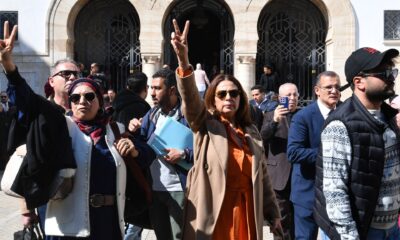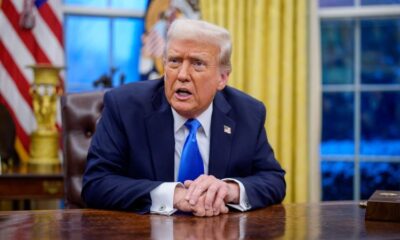CNN
—
Radio Free Europe streamed unflinching coverage of Russia’s war in Ukraine to Russians when the Kremlin banned its citizens from calling it a war.
Radio Free Asia bravely exposed China’s mass detention of the Uyghurs, a predominately Muslim ethnic minority in the far west of the country.
The Open Technology Fund helped fund the creation of Signal, the hugely popular encrypted messaging app.
All three American government-funded outlets are in jeopardy now that the Trump administration has terminated all of the grant programs at the US Agency for Global Media, or USAGM.
The administration said Saturday that the agency is “not salvageable.” Thousands of employees and contractors are now trying to figure out what’s next for them.
Advocates for the networks, including lawmakers in both the United States and Europe, say the cutbacks will undermine press freedoms and hurt America’s standing in the world.
America’s international broadcasters have, for more than eight decades, “served as critical sources of independent news for audiences living under censorship, state-controlled media, and information blackouts,” the UK-based Association for International Broadcasting said in a statement. “Their reporting provides an essential counterbalance to disinformation and propaganda in some of the most restrictive media environments in the world.”
The president of Radio Free Europe/Radio Liberty, Steve Capus, was more blunt over the weekend: He said the termination of the network “would be a massive gift to America’s enemies. The Iranian Ayatollahs, Chinese communist leaders, and autocrats in Moscow and Minsk would celebrate the demise of RFE/RL after 75 years. Handing our adversaries a win would make them stronger and America weaker.”
The biggest network targeted by Trump’s dismantling is Voice of America, a global news outlet with stations and websites in local languages around the world. Voice of America abruptly stopped publishing new stories Saturday when virtually the entire staff was placed on administrative leave and told to stop working.
Until Saturday, USAGM also bankrolled networks in Europe, Asia and the Middle East, as well as the Open Technology Fund, which fights online censorship and promotes an open internet, countering repression and surveillance by authoritarian regimes. The agency also oversees the Office of Cuba Broadcasting, which has a long history of broadcasting news in Spanish to the island of Cuba.
The Trump administration has indicated that the funds for those efforts are being cut off, though the networks were still operating as of Sunday.
Since the agency was established and funded by Congress, and its broadcasting initiatives have historically won bipartisan support, some employees are wondering if and when Trump’s actions will be challenged.
Radio Free Asia CEO Bay Fang said “we plan to challenge this short-sighted order and pursue whatever means necessary to continue our work and protect our courageous journalists.”
Fang called the grant cutoff “a reward to dictators and despots, including the Chinese Communist Party, who would like nothing better than to have their influence go unchecked in the information space.”
That’s the primary point made by outside advocates, as well. USAGM “promotes press freedom and counters disinformation worldwide,” Democratic congresswoman Lois Frankel said Saturday. “Dismantling it silences independent journalism, emboldens authoritarian regimes, and weakens democracy at home and abroad.”
Republican congressman Don Bacon also praised the broadcasters for “getting America’s story to the rest of the world.”
The Trump White House is telling a completely different story. In a press release, the administration claimed the “Voice of Radical America” produced “radical propaganda.” Trump loyalist Kari Lake, who was tapped to oversee Voice of America, said “waste, fraud, and abuse run rampant in this agency and American taxpayers shouldn’t have to fund it.”
In a late-night executive order on Friday, Trump said the agency should be reduced to its bare minimum function as required by statute.
Affected employees are now left wondering if Lake and her deputies will try to transform the gutted networks into an overtly partisan, pro-Trump media apparatus.
For now, they’ve been told to remain on leave “until further notice.”
Liam Scott, who covers the press freedom beat for VOA, said that 10 journalists from US-funded broadcasters are currently “imprisoned around the world for doing their jobs.”
He wrote on X, “I hope they will not be forgotten.”

